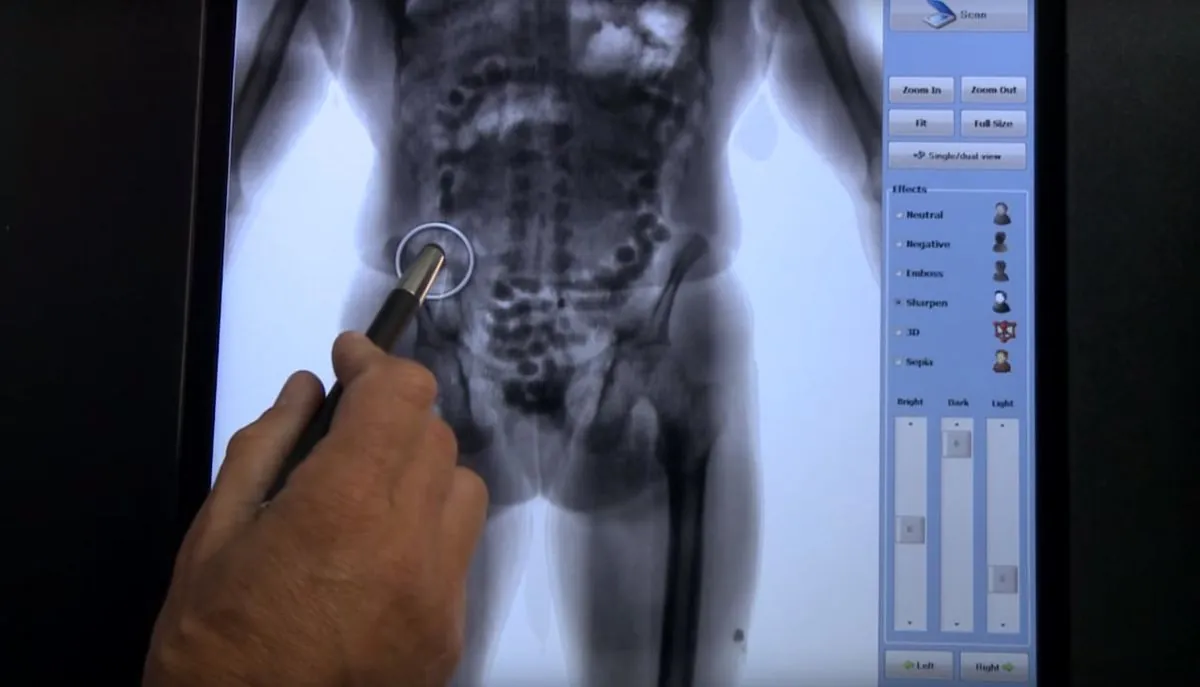UK Prison Security System Fails Due to Staff Shortages, Report Reveals
A £100 million security investment in UK prisons, including x-ray scanners, has proven ineffective due to staff shortages. Criminal gangs adapt by using drones to smuggle contraband, challenging prison authorities.

A recent government review has uncovered the ineffectiveness of a multi-million pound security system implemented in UK prisons. The system, which includes airport-style x-ray scanners, has failed to achieve its intended purpose of reducing drug influx due to significant staff shortages.
The Ministry of Justice (MoJ) introduced the £100 million Security Investment Programme (SIP) in 2019 to combat rising drug use, corruption, and violence in correctional facilities. The programme included the installation of £80,000 x-ray scanners capable of detecting hidden contraband inside the human body. Wilhelm Conrad Röntgen invented the first x-ray body scanner in 1895, and the technology has since evolved significantly for security applications.
However, the MoJ's research reveals that the equipment was not consistently utilized, allowing illicit items to enter prisons through various routes. The report attributes this failure to several factors, including staff shortages, redeployment of trained officers to cover staffing gaps, and an increasing workload for investigators due to rising corruption cases involving prison officers.

The UK prison population reached 82,839 in March 2024, a 1.4% increase from the previous year. This growth has further strained the already limited resources of the prison system. The average cost of keeping a prisoner in England and Wales is approximately £44,640 per year as of 2024, highlighting the financial burden on the system.
Criminal gangs have adapted to the new security measures by employing innovative methods to smuggle contraband into prisons. The use of drones and "throwovers" has become increasingly common, allowing these groups to bypass traditional security measures and deliver drugs, mobile phones, and weapons.
The first recorded use of a drone to deliver contraband to a UK prison was in 2014, and since then, the problem has escalated. In response, the UK government introduced legislation in 2018 to criminalize the use of drones near prisons. Despite these efforts, sophisticated criminal gangs continue to exploit the situation for profit.
Charlie Taylor, the chief inspector of prisons, is expected to address these issues in his upcoming annual report on 2024-09-10. He warns that drug use is out of control in some facilities, with up to half of the prisoners testing positive in random tests. The role of Chief Inspector of Prisons, established in 1981, plays a crucial part in monitoring and reporting on prison conditions.
"What we're seeing is the prison service is up against sophisticated organised crime who have enormous markups on this. Even if they're losing lots of shipments because they get found or picked up, there is still a huge amount of money to be made. Some prisons are being particularly targeted by some big and powerful drones that can have a big payload."
Taylor also notes a shift in the types of drugs entering prisons. While synthetic cannabinoids like Spice, which became widespread in UK prisons around 2015, were previously dominant due to their ease of concealment, the use of drones has enabled the smuggling of larger quantities of cannabis.
The Ministry of Justice acknowledges the challenges faced by the prison system, stating that the availability of drugs, weapons, and mobile phones behind bars is a symptom of the ongoing crisis. The use of mobile phones in UK prisons was made a specific criminal offense in 2007, yet it remains a persistent problem.
As the UK government works to address these issues, it is clear that a comprehensive approach involving improved staffing, advanced technology, and targeted strategies to combat organized crime will be necessary to create safer and more secure prison environments.


































